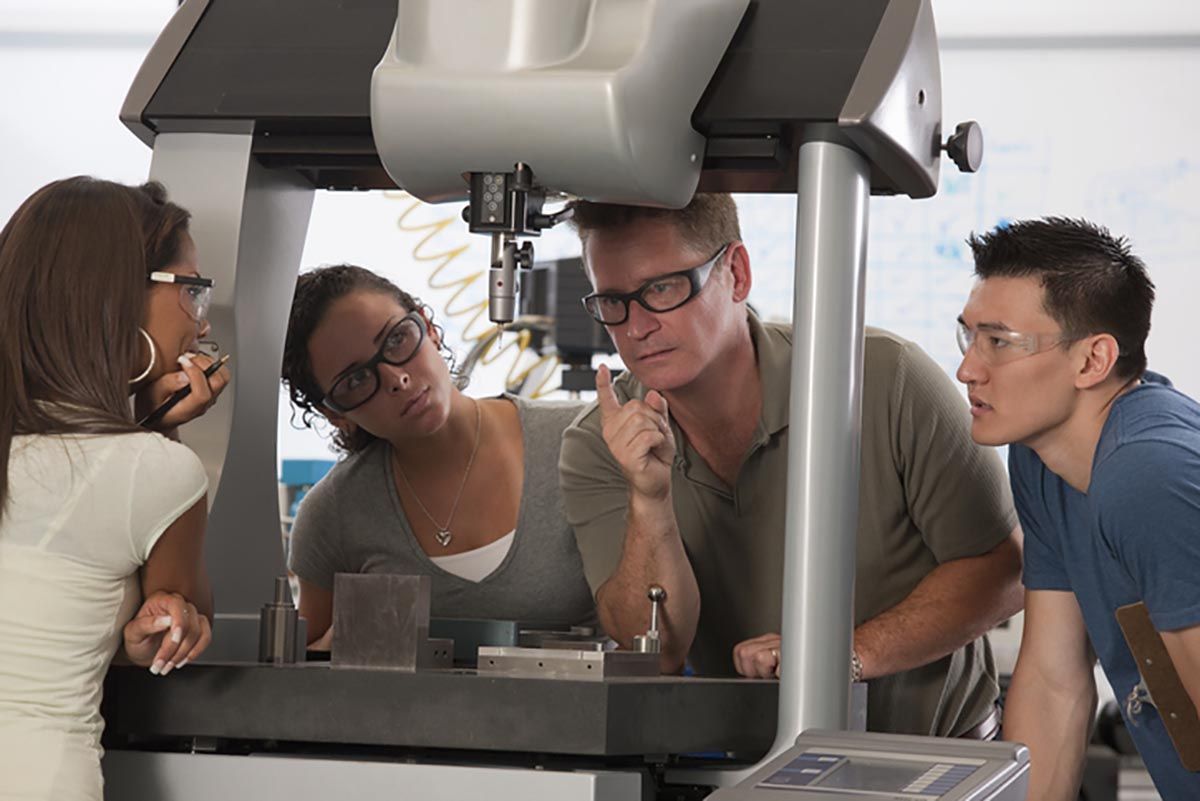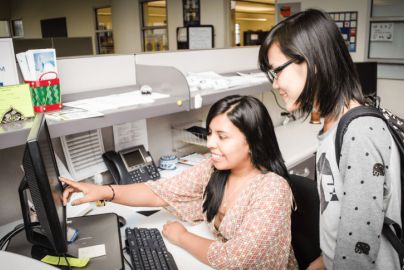Metrology Technologies

COMMITMENT
MODE OF STUDY
TERMS OFFERED
CAREER FIELD(S)
COST
Exams and textbooks are not included in price.
FUNDING
CAMPUSES
The Metrology (CMM) Technologies program will prepare you for all levels of precision inspection common to aerospace, medical, semiconductor and OEM manufacturing. You will learn to interpret basic to advanced engineering drawings, symbols, tolerances and GD&T applications. The skills development on various precision tools will span from basic bench inspections with micrometers and gaging through to advanced digital technologies such as CMM, Vision, Microhite and Laser Scanning. Students will earn a certificate in metrology and build critical skills and knowledge for any Quality Control environment.
Please contact Workforce Development and Continuing Education at Housatonic at 203-332-5037 or email at HC-ContinuingEd@ctstate.edu for more information.
CMM Level 1 (42 hours)
Covering basic blueprint reading and the technology of measurements, you will learn to understand lines and their uses, auxiliary views, sectional views, basic and special dimensioning, dimensioning practices for holes, chamfers and angles and tapers in blueprints as well as how to measure characteristics using a variety of measurement devices including calipers, micrometers, scales, height stands, thread gauges, indicator stands, depth micrometers, dial indicators, optical comparators and coordinate measuring machines (CMM).
CMM Level 2 (42 hours)
An in-depth study of individual feature types as well as geometric dimensioning and tolerancing (GDT). By providing hands-on instruction in the manufacturing shop, you will learn how to create and manage CMM programs including equipment orientation, verification checks, troubleshooting, and advanced alignments. During this course, you will learn the best methods of inspection skills to use in evaluating the inspection process.
This Course Covers:
Machine Safety (6 hours)
- Injury threats & dangers
- PPE
- Machine guarding
Milling Processes (30 hours)
- Basic milling operations
- Hole making operations
- Machine types
- Milling cutters types
- Measurement
- Safety
Turning Processes (30 hours)
- Basic turning operations
- OD Turning & threading operations
- ID turning operations & hole making
- Turning tools
- Lathe types
- Measurement
- Safety
Precision Grinding (12 hours)
- Abrasive machining operations
- Wheel mounting & wheel safety
- Grinding wheel types
- Grinding machine types
- Troubleshooting surface finishes.
- Measurement
Precision Inspection (12 hours)
- Micrometers & Calipers
- Height gages
- Squares & Protractors
- Indicators, Surface gage, magnetic bases
- Gage pins & Gage Blocks
- V Blocks & Sine bars and bench centers
- Inspection setup
In This Course You'll Learn To:
In This Course You'll Learn To:
- Interpret and analyze blueprints effectively, including understanding lines, auxiliary views, sectional views and dimensioning practices for holes, chamfers, angles and tapers.
- Demonstrate proficiency using a diverse range of measurement devices, including calipers, micrometers, scales, thread gauges and coordinate measuring machines (CMM) to accurately measure workpiece characteristics
- Apply geometric dimensioning and tolerancing (GDT) principles to individual feature types and assess their compliance with design specifications
- Create, manage and troubleshoot CMM programs in a manufacturing shop environment including equipment orientation, verification checks and advanced alignments
- Utilize critical thinking skills to analyze measurement data, identify deviations from design requirements and implement corrective actions to ensure precision machining and inspection outcomes
Admission Requirements:
- Must be at least 18 years of age
- GED or high school diploma
Upcoming Courses
Next Steps
Find Your Course
Use our course finder to get more information about upcoming classes including dates, times, locations and more. Select the relevant term that starts with "WFD/CE" to see Workforce Development and Continuing Education courses.

Register
Registering for a course is easy and can be done in-person, online, or by mail.

Financial Aid and Funding Options
Students in our non-credit career programs are not eligible for federal financial aid or free college funding. However, there are alternative funding options available, such as WIOA, SNAP, and scholarships.
